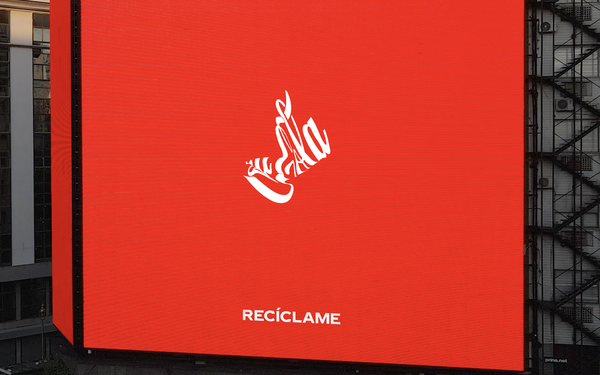consumer packaged goods
How 3 CPG Brands Approached Earth Day
- by Erik Oster , April 23, 2024

Maybe it’s because big brands are more mindful of marketing that could be interpreted as corporate “greenwashing,” in the wake of increased consumer -- and even legal -- scrutiny. Whatever the reason, brands seem more subdued about the holiday in 2024.
That doesn’t mean some brands didn’t schedule timely campaigns or sustainability announcements in the days leading up to April 22, and on the day itself. Below are initiatives from three CPG brands.
Coca-Cola
Some brand logos are so iconic, they’re identifiable even while being destroyed.
That’s the message at the heart of a new campaign from Coca-Cola. The brand recently launched a “Recycle Me” global OOH campaign, which it says is designed to promote consumer recycling of its cans and bottles, which initially launched in Latin America. It imagines Coca-Cola’s logo in the midst of being crushed, with the simple “Recycle Me” messaging accompanying the image.
advertisement
advertisement
.“Recycle Me” will roll out with OOH activations across Buenos Aires, Argentina; Brazil; and Mexico, for the first stage of the campaign – as well as in print advertising, and on social channels.
According to Coca-Cola, the campaign is intended to support the company’s “World Without Waste” sustainability strategy. “We are working to innovate our products towards our global goal of making 100% of our packaging recyclable by 2025,” said Islam ElDessouky, global vice president, creative strategy and content at Coca-Cola, in a release. “We also aim to collect and recycle a bottle or can for each one we sell by 2030, and we have a unique opportunity to use our marketing to send a powerful message and bring consumers along our journey.”
Relatedly, Coca-Cola also announced changes aimed to reduce the amount of plastic used in its bottles, introducing a redesign of its small PET bottles for the first time in decades.
The company anticipates cutting down its use of new plastic as a result of the redesign by an amount equating to around 800 million bottles. It also claims the changes will reduce its carbon emissions in 2025, compared to 2024, by an estimated amount roughly equivalent to removing 17,000 cars from the road for the year.
The efforts follows a series of legal developments related to “greenwashing” claims against the company case initially brought against the company in 2021, the Earth Island Institute organization alleged that Coca-Cola engaged in deceptive marketing promoting its sustainability practices. Coca-Cola succeeded at having the case dismissed in a federal D.C. court in late 2022, but the decision was appealed by the Earth Island Institute. The appeal was heard by a D.C. Appellate Court, with a decision pending following oral arguments last November.
Firestone Walker
California brewery Firestone Walker focused on long-form video to promote its environmentally friendly brewing practices – an approach in line with its broader marketing strategy
The brand released a “Brewing For Tomorrow” video online on April 22, outlining its approach to sustainability. According to the brand, its clean energy initiatives prevent “more than 3,000 metric tons of carbon from entering our skies each year,” and reducing waste by feeding local livestock in the area with “more than 18 million pounds” of spent grain derived from the brewing process.
Lundberg Family Farms
One food brand took a distinctive approach to Earth Day: “protesting” the holiday.
One food brand took a unique approach to Earth Day: “protesting” the holiday.
Lundberg Family Farms, which touts itself as the leading U.S. Regenerative Organic Certified food brand, upped the ante on its decision to “quit” Earth Day in 2023. This year, the brand decided to “protest” the holiday in honor of the ducks on its farm.
The “protest” in question is about relegating environmental concerns to a day or month, while the “Ducking” focus relates to the farm’s use of cover crops each winter which function as nesting habitats for the aquatic birds.
“We believe regenerative starts with organic, but growing rice without toxic chemicals is only the beginning,” Brita Lundberg, chief storyteller at Lundberg Family Farms, said in a statement. “Regenerative organic farming practices require a year-round commitment to caring for our land and the creatures who call it home.”
The initiative is the second stage of a “Ducking Good Rice” campaign, and includes a full-page print ad in The New York Times, a Times Square billboard, and a World Trade Center PATH station OOH takeover, as well as the brand’s introducing an “Albert the duckling” character – a feathered mascot who walked the streets of New York to “protest” Earth Day and hand out Lundberg Family Farms samples over the weekend.




